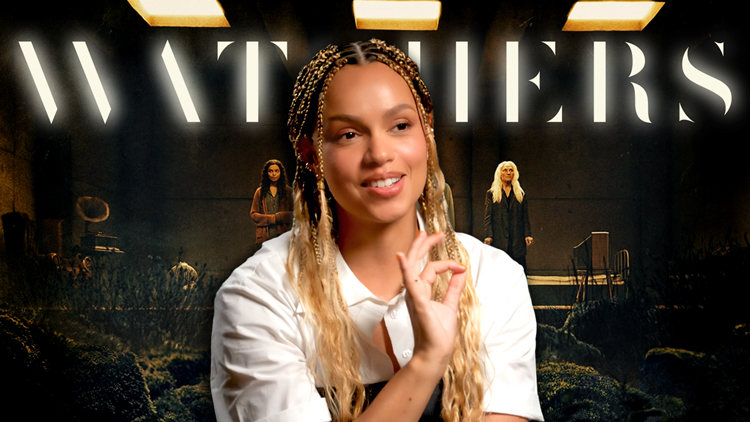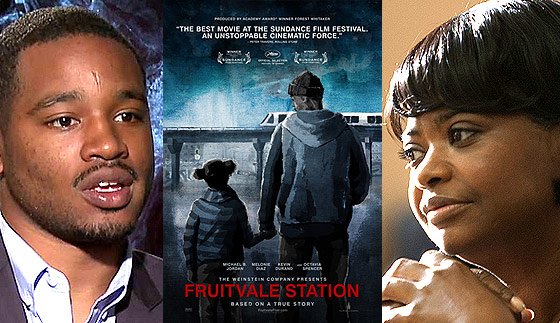
The arrival of Ryan Coogler’s Sundance sensation “Fruitvale Station” has finally brought the year’s first real Oscar contender. Not to the spoil the popcorn party that’s been dominating the film scene this summer, but Coogler’s spare and sobering drama could not have had better or such prescient timing.
Opening with shocking real-life footage captured on camera phone, Coogler flashes back and limits his narrative to the final hours of Oscar Grant III. The unarmed Grant, a 22 year-old black Bay Area resident, was fatally shot in the back by a white BART police officer during the early hours of New Year’s Day in 2009. The event incited riots and a public outcry in its wake, capturing national headlines. Yet, instead of mythologizing Grant’s death to stir up the myriad of isms generated by the crime, Coogler’s minimalistic poetry, in sight and sound, allows for genuine humanity to fill the screen. This is the story of young life cut horribly short without reason. Some imagination is at play here with several key moments of near Greek tragedy proportions. However, the shattering conclusion is painfully reconstructed fact with a final scene that leaves an audience forced to face their own sensibilities on law, order, race and justice. Without question, “Fruitvale Station” is a filmmaking debut that introduces a stunning new voice.
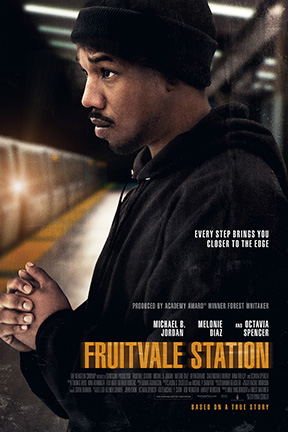
Coogler’s assured hand with his cast plays a substantial role in keeping the melodrama at a low simmer. With an ensemble led by the charismatic pairing of Michael B. Jordan (“Chronicle”) as Grant and Melonie Diaz (“Raising Victor Vargas”) as his girlfriend Sophina, these fresh talents bring an earnestness and no-nonsense approach that permeates the film. But, it is Oscar winner Octavia Spencer (“The Help”) who delivers the crushing emotional wallop. It is her supporting turn as Grant’s mother that drives home the feeling of futility and senselessness of the events at Fruitvale Station.
In the days leading up to the release of the film, Coogler and Spencer were in candid form as they made the press rounds to promote the film. Central to the conversation was the commitment to honoring the legacy of Grant’s death by creating the definitive account of his life.
It would have been interesting to see how the dialogue would have been influenced by the controversial verdict in the George Zimmerman-Trayvon Martin case, which had yet to be handed down. Regardless, Coogler and cast affirmed why films like “Fruitvale Station” need to stand as a poignant reminder to us all on the fragility of life and our responsibility to respect it.
Desde Hollywood: Why did you confine the film to one day instead of painting a bigger picture?
Ryan Coogler: For me, that’s what I was most interested in. I wasn’t interested in the aftermath of the shooting and I thought that tackling it on this day would give audiences the chance of spending time with this character. There are a lot of filmmakers that tackle issues under a one day format. You look at a film like Elephant by Gus Van Sant which covers a situation like the Columbine shooting and you spend, not even twenty-four hours, more like eight hours with the kids on that day. But you feel like you’ve known them, and you feel like you get a good understanding of the situation.
I thought that there were many ironies in that day and we uncovered more as we researched them, but for a guy who’s twenty-two who’s just been out of prison a few months, you know, to lose his life on New Year’s Eve …I find it more optimistic than Christmas or Easter because, you know, everybody knows what it’s like to turn over a new calendar, have a new slate. People get excited. They want to fix things in their lives. I’m going to work on this, I’m going to work on that, you know, this year I’m going to do this or that. Oscar had a lot at stake that day being his mom’s birthday. I thought it would be the best way to look at it.
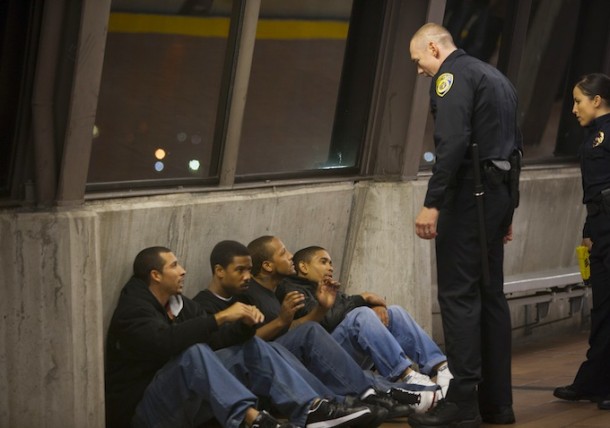
Desde Hollywood: Did the incident with the dog really happen?
Coogler: No, we took a dramatic license. It was interesting because well, on that day, most of the things that Oscar did could be verified because he was always with somebody, he didn’t like to be alone. He was with his friends, his family, his mom, his girl and with his daughter. But there was a moment in time in that day when he was alone and Sofina talked to me about it and gave me a lot of insight about Oscar: she told me that when he picked her up that day, he was really introspective, more so than ever.
Right around the time I was making it, writing the script, my little brother came home. He’s the kind of dude that’s super bubbly. He is a lot like Octavia. She . But he was really introspective that day and I asked him “What happened? Everything cool?”. He told me that he was at the gas station and he saw a stray dog being hit by a car, and then it died right in front of him. For some reason that story stuck with me. It made sense for Oscar and not to mention the fact that he really wanted to get out of his apartment. It’s something he would always tell Sofina: “we’ll get out of this place, we’ll get a bigger place, we’ll get a backyard and I can get a pit-bull finally”. It was something that he always wanted.
Octavia Spencer: It’s my favorite moment in the film because when we wee a pit-bull we think all these negative things about that animal. Well, that’s how young men of color are painted and I thought it was beautiful, a great harbinger. It was a harbinger of what was to come and a way to see just what we bring to the table emotionally.
The pit-bull was just a meek animal wandering out into the street, killed and the driver didn’t even stop and I thought “Okay, wow, that is powerful!”. The detractors of this film who will say “Oh, they’re painting him in this heroic light, he’s a martyr” and I think that the only heroic act that he actually does is dealing with this dog. Everything else, doing an errand for his mom, picking his daughter up from school, brushing his teeth with his daughter, those are human characteristics, not heroic.
What I loved more than anything about the film and what made me want to be a part of it, is that this young African American filmmaker didn’t editorialize Oscar Reyes’ life. He just presented him in a way that was restorative of his humanity because the only thing we saw about him was his checkered past in the media. That’s the only thing we saw.
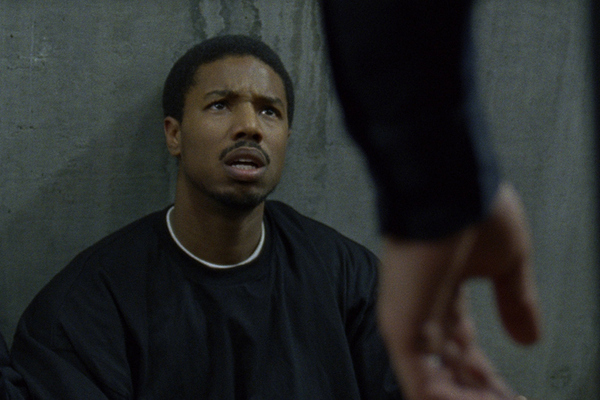
Desde Hollywood: What was the trick to keep the cast on the same page?
Spencer: I would love to take credit for that, but I can’t. You’ve got to dial it back because, it was all Ryan.
Coogler: You’ve got to take credit. The thing about our cast is all of them are team players. They all come from great families, they’re all family oriented and that’s how I like to approach filmmaking. I played football my whole life. Octavia, Michael, Melanie, Anna, Kevin …they all saw it as a team effort. It was “What can I do to make the film better? What can I do to bring the best out of everybody else?”. It was phenomenal to have collaborators like that and I thank them all the time. I am super thankful for this woman.
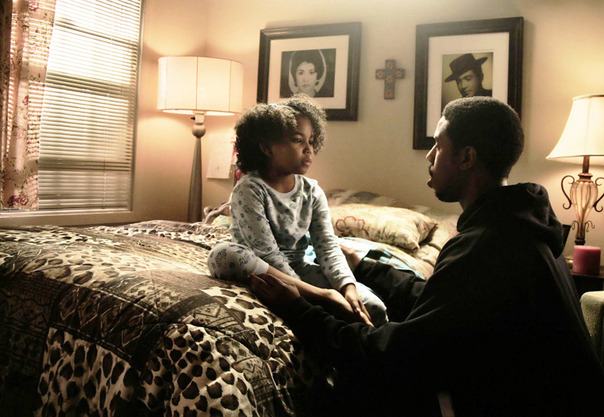
Desde Hollywood: Why release the film at this time of year?
Coogler: Well, it was in collaboration with our distributor. I’ve never released a movie before. Every day is new for me in this process, man, I really lean on Octavia who’s been through this and on the Weinstein Company for guidance. I’m used to being in film school where I make a movie and I’m like “Hey guys, watch my movie!”. I’m fresh out of, so I have a lot of trust in the distribution company and it’s something that we talked about. They throw around this word called “counterprogramming”.
Spencer: Well, I think The Great Gatsby is “counterprogramming” at its best. Those are films that are held until the end of the year and there are so many of them that we could get lost in the shuffle. So why not? I like being up against a bunch of superhero movies because if you want to check out of that world and try on something that’s more realistic, socially relevant and topical then why not Fruitvale? I think if it’s something that people are inclined to see, they’re going to find a way to see it whether it comes out in October, December or thank God, July.
Coogler: I’m excited, I feel like we’re in good company. I know that Richard Linkletter’s film [Before Midnight] is out right now. Quite a few incredible independent films have been released or are coming up in the following months. To be honest with you, a lot of my favorite filmmakers are releasing films in the fall, so if this comes out in November, I’m not going to see my own movie. I’m going to be at Alfonso Caron’s movie [Gravity] or Scorsese’s Wolf of Wall Street or something. I think they know what they’re doing.
“Ryan Coogler’s FRUITVALE STATION follows the true story of Oscar Grant (Michael B. Jordan), a 22-year-old Bay Area resident who wakes up on the morning of December 31, 2008 and feels something in the air. Not sure what it is, he takes it as a sign to get a head start on his resolutions: being a better son to his mother (Octavia Spencer), whose birthday falls on New Year’s Eve, being a better partner to his girlfriend Sophina (Melonie Diaz), who he hasn’t been completely honest with as of late, and being a better father to Tatiana (Ariana Neal), their beautiful four year-old daughter. Crossing paths with friends, family, and strangers, Oscar starts out well, but as the day goes on, he realizes that change is not going to come easily.”
In selected theaters now, nationwide July 26.




